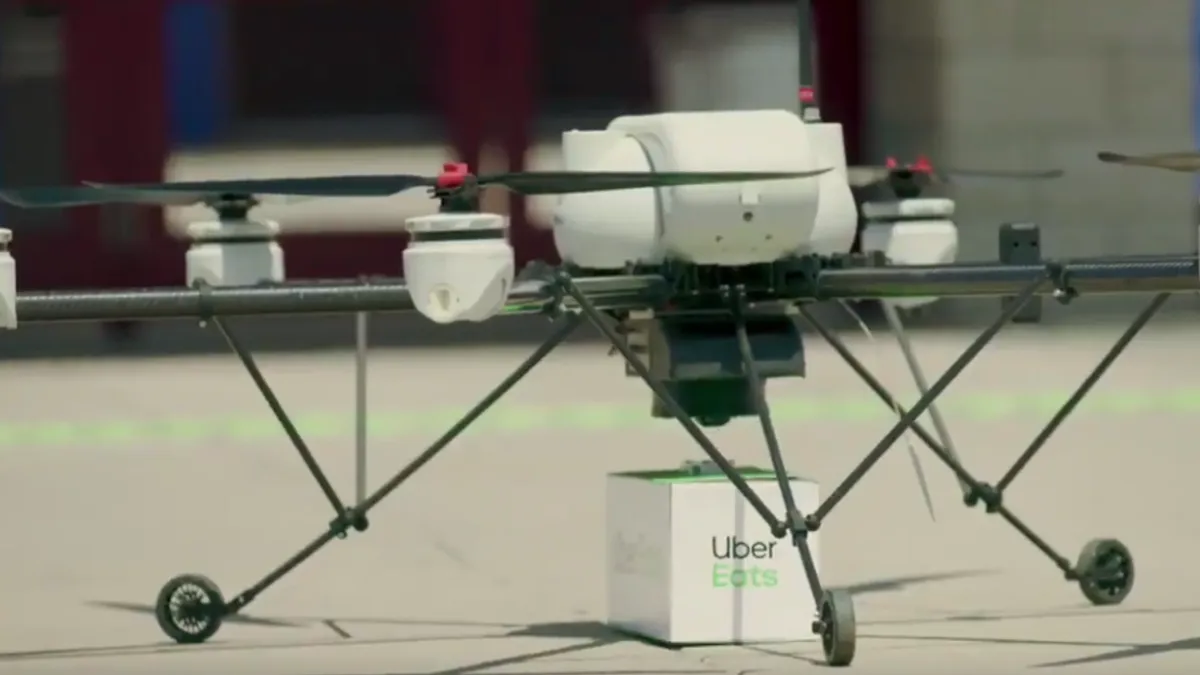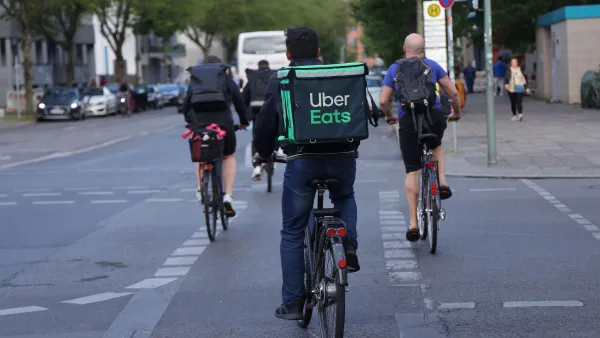Dive Brief:
- Uber Eats aims to begin delivering food via drones this summer in San Diego, Uber's urban air mobility unit Uber Elevate announced at the Uber Elevate conference Wednesday. The test is being overseen by the federal UAS Integration Pilot Program, and Uber is in the final steps of earning Federal Aviation Administration approval, according to Forbes.
- The new delivery model begins when a restaurant places a food order on an Uber Eats drone, which will fly to meet a courier at a second location. The courier will then complete the last leg of the journey to the delivery customer's door. "We don't need to get drones direct to our customer, we just have to get it close," Uber Elevate's head of flight operations Luke Fischer said at the conference.
- Uber made drone test deliveries last month between a McDonald's and San Diego State University. The company is currently developing a customized food delivery drone, which it plans to launch this year.
Dive Insight:
Drone delivery has been top of mind for both major restaurant brands and third-party delivery platforms for years now. The obstacle that has kept this tech from taking flight at scale, Fischer told conference attendees, is because it's unclear what the best use case for the technology is, making drone deliveries is challenging in urban environments thanks to a lack of backyards, and there is no definitive regulatory structure that drone delivery fits under.
Uber's plan to fly delivery drones to designated courier pickup points are how the company aims to "solve the last 100 feet of drone delivery," Fischer said. It also will help restaurants reach additional customers outside of their typical delivery range without impacting food quality, he said. This is crucial, he said, as 68% of the global population will live in dense urban environments by 2050, compared to 55% today. Drones may also land on the roof of a parked Uber car with a QR code display, and a driver will transport the food to its final destination.
Still, the Uber Eats pilot is not yet a done deal. Uber Elevate filed an application with the FAA in May, which was scheduled to issue a response by June 10. It's unclear if the organization has given Uber a formal response or if the date has been pushed back, but the company seems confident drone deliveries will begin soon. And though Uber's request would exempt it from 16 federal regulations required of traditional aircraft, approval seems likely, given that Google's Wing Aviation drone delivery recently earned a green light in Virginia.
If Uber does gain official approval this summer, it could usher in the next level of third-party delivery competition. The biggest question, however, is whether this method will actual be cost saving for these companies. As the segment becomes more crowded, platforms are racing to deliver superior convenience, but if they gut their bottom lines in the process, the road ahead will be daunting.















